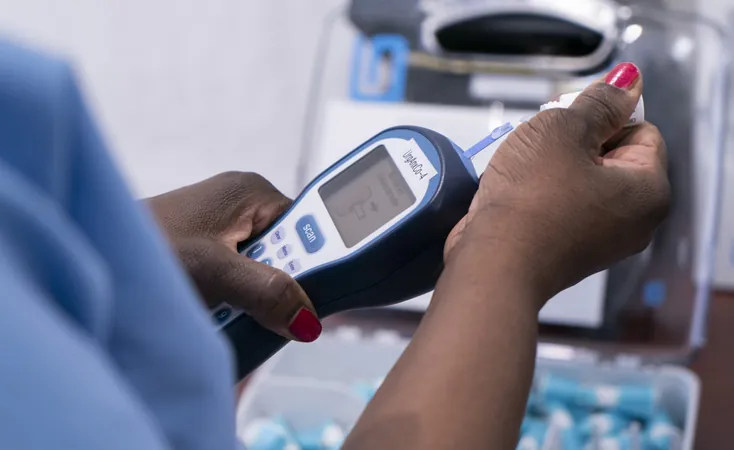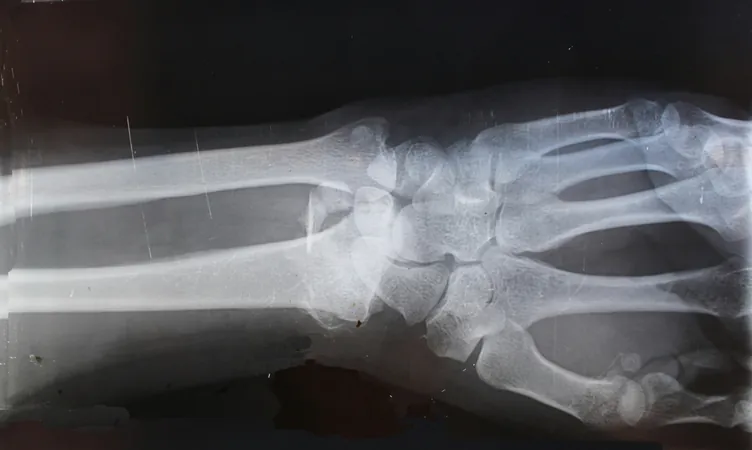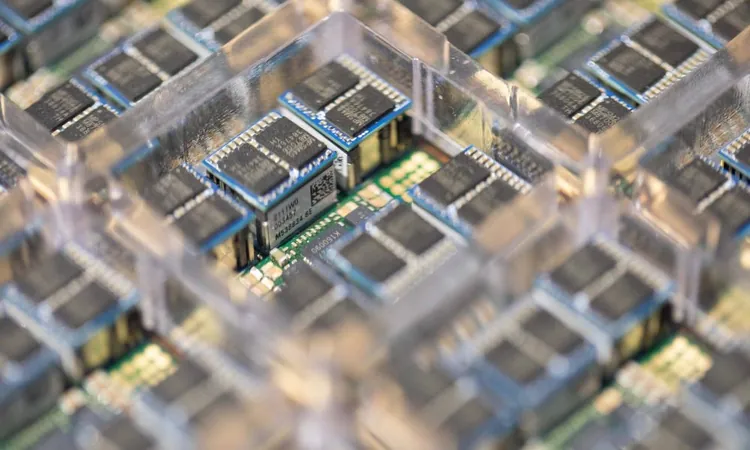
Could Stem Cells Be the Key to Curing Type 1 Diabetes? A Montreal Doctor Weighs In!
2025-07-04
Author: William
Breakthrough Study on Stem Cells and Diabetes
Imagine a world where insulin injections for Type 1 diabetes are a thing of the past. A groundbreaking study published in the renowned New England Journal of Medicine reveals that stem cell therapy has restored insulin production in about 10 patients, paving the way for a potential diabetes cure.
Significant Progress, But Challenges Remain
Dr. Rémi Rabasa-Lhoret, a prominent expert at the Montreal Clinical Research Institute, heralds this development as a significant stride toward eliminating the need for insulin pumps and needles. Although the study has limitations, the results are promising.
Diving Deeper into the Study
The study involved 14 participants, with two tragically passing away due to unrelated health issues. Among the remaining 12, a staggering 83% experienced a reduction or complete elimination of their need for exogenous insulin within a year. Remarkably, there were no serious episodes of hypoglycemia noted in a subgroup that received the full treatment.
The Road to a True Cure
Dr. Rabasa-Lhoret holds out hope that we could one day fully cure Type 1 diabetes by restoring insulin-producing cells. However, this option currently requires either a complete pancreas or insulin cell transplant from deceased donors—a process accompanied by a rigorous immunosuppression regimen to avert transplant rejection.
Side Effects and Next Steps
The study also highlights the side effects linked to the immunosuppressive therapy necessary for transplant recipients. While most side effects were mild to moderate, there are significant risks involved, including infections and cancer.
A Future Without Immunosuppression?
Looking ahead, Dr. Rabasa-Lhoret dreams of a treatment that eliminates the need for immunosuppression entirely. Future therapies might come from transforming a patient’s own stem cells into insulin-producing cells—a complex process that has only been achieved in one patient to date.
The Challenges of Immunological Compatibility
Unfortunately, the risk that modified stem cells could provoke an immune response poses a significant challenge. Long-term safety is also a concern, as these cells must not turn into cancerous cells.
The Path Forward
Though still in the early stages, Dr. Rabasa-Lhoret's optimistic assessment suggests that the dream of a cure might be closer than ever. “We now know that it's feasible,” he states, emphasizing that these results are not just lab-based but have been demonstrated in humans.
A Venture with Vertex
The promising research is being carried out by Vertex, a biotechnology company that's already made waves with treatments targeting the root causes of cystic fibrosis. As the landscape of diabetes treatment evolves, every step toward a reliable solution is a victory worth celebrating.









 Brasil (PT)
Brasil (PT)
 Canada (EN)
Canada (EN)
 Chile (ES)
Chile (ES)
 Česko (CS)
Česko (CS)
 대한민국 (KO)
대한민국 (KO)
 España (ES)
España (ES)
 France (FR)
France (FR)
 Hong Kong (EN)
Hong Kong (EN)
 Italia (IT)
Italia (IT)
 日本 (JA)
日本 (JA)
 Magyarország (HU)
Magyarország (HU)
 Norge (NO)
Norge (NO)
 Polska (PL)
Polska (PL)
 Schweiz (DE)
Schweiz (DE)
 Singapore (EN)
Singapore (EN)
 Sverige (SV)
Sverige (SV)
 Suomi (FI)
Suomi (FI)
 Türkiye (TR)
Türkiye (TR)
 الإمارات العربية المتحدة (AR)
الإمارات العربية المتحدة (AR)